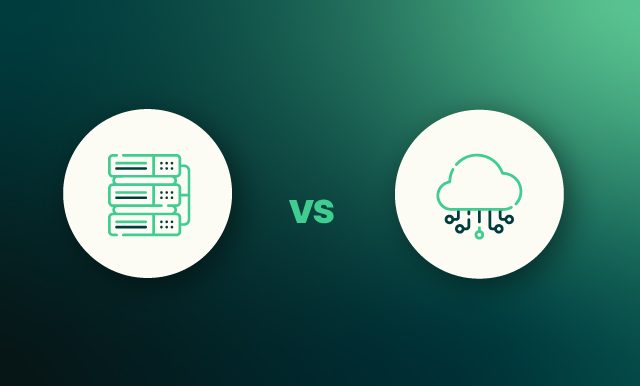Amidst the ever-shifting terrain of investment strategies, a disruptive concept is stirring up the conventional real estate landscape: commercial real estate tokenization. This article takes a deep dive into the realm of tokenized real estate, unveiling its potential to overhaul traditional property investment. By delving into its advantages, hurdles, and future prospects, we aim to furnish you with a holistic grasp of this inventive investment model and its far-reaching implications for the future of the real estate sector.
Bolstering the intrigue, consider this: the real estate tokenization market, which stood at a formidable US$ 2.7 billion in 2022, is projected to soar to an astonishing US$ 18.2 billion by 2032. Such explosive growth on the horizon underscores the bright future that tokenization holds, transforming real estate investment into an arena of unprecedented opportunities.
Should you find yourself contemplating the creation of a real estate property tokenization platform, the implementation of smart contracts, or harnessing the power of blockchain, Forbytes presents an unrivaled fusion of skill sets and expertise.
With our knack for constructing real estate-centric projects and navigating the intricacies of fintech and blockchain, we stand as your quintessential partner in these pursuits.
Introduction: Tokenized Real Estate and Its Investment Benefits
Real estate tokenization introduces a pioneering method of property investment by leveraging the capabilities of blockchain technology. In the realm of assets, the physical attributes of real estate frequently give rise to intricacies in trading and access, particularly in scenarios involving multiple proprietors or occupants.
Tokenized real estate offers a remedy by digitally segmenting real property assets into tokens, thereby facilitating fractional ownership. This innovation empowers investors to engage with a portion of a property’s value, liberating them from the constraints of traditional substantial capital outlays. This fractional ownership model inherently enhances liquidity, democratizing real estate investment and making it more accessible to a broader range of individuals.
These tokens not only represent ownership but also open doors to innovative investment avenues:
- Specific ownership. Fractional ownership of a property becomes feasible, removing the hurdles of traditional real estate transactions.
- Control entities’ equity. Tokens signify ownership in entities managing properties, expanding the idea of possession.
- Debt interests solidified. Tokens can encapsulate interests in property-backed debts, diversifying investment strategies.
- Profit participation. Investors gain tokens that offer a share in real estate venture profits, broadening revenue streams.
Unlike non-fungible tokens (NFTs, which can be distributed via NFT marketplaces), real estate tokens link value to the underlying property, making them security tokens rooted in real assets. For those acquainted with real estate investment trusts (REITs), real estate security tokens might seem familiar, but they enable singular property investment, not just pooled assets.

Blockchain’s Role and the Promise of Smart Contracts
Tokenization of real estate relies on smart contracts, which are automated code segments within the blockchain executing when predefined conditions are met. These contracts manage equity transactions linked to sold tokens, automating all token functions, including dividends and retail sales.
Here’s a breakdown of how smart contracts operate in real estate tokenization:
- Select property. Choose a property, considering its potential for private real estate investment appeal. This choice justifies costs and avoids resource wastage.
- Develop smart contracts. Craft smart contracts to automate token functions, ensuring seamless execution of equity transactions, dividends, and sales.
- Choose a blockchain network. Select a suitable blockchain network and smart contract platform to host your tokenized assets, ensuring efficiency and security.
- Ensure compliance. Adhere to securities regulations to prevent legal issues. Compliance is paramount for successful tokenization.
- Launch tokens. Once smart contracts are in place and compliance is confirmed, launch the tokens onto the chosen blockchain network.
- Explore alternate sales. After the token launch, explore opportunities for sales on alternative trading platforms, expanding your token’s reach.
Incorporating these steps ensures a systematic and effective approach to real estate tokenization. If you require quick help and consultation in terms of tokenized property implementation, get a consultation from our fin-tech engineers.

Benefits of Real Estate Tokenization: Why People Are Motivated to Invest in Tokenized Real Estate
In the realm of real estate investment, traditional barriers are dismantled through the power of real estate tokenization. This transformative approach offers a range of advantages that redefine property ownership and investment strategies. Сommercial real estate tokenization emerges as a gateway to a new era, one defined by accessibility, flexibility, and efficiency.
Fractional ownership: diversify with ease
Conventional real estate investment demanded substantial capital, limiting participation. Tokenization revolutionizes this by enabling investors to engage with smaller amounts while diversifying across multiple properties. This opens doors for a broader spectrum of investors to explore and expand their portfolios.
Liquidity revolution: a new era in trading
Real estate’s historical illiquidity undergoes a transformation with tokenization. Property tokens can now be bought, sold, or traded on digital marketplaces, ushering in a level of liquidity previously unparalleled in real estate transactions. This newfound flexibility empowers investors to navigate the market with agility.
Global accessibility: unveiling borderless opportunities
Tokenized real estate transcends geographical constraints, granting access to investment opportunities once limited by location. Investors from diverse corners of the world can now participate in markets that were previously out of reach. The global platform created by tokenization fosters new dimensions of investment diversity.
Transparency: blockchain’s assurance
Blockchain’s inherent transparency becomes a cornerstone of tokenized real estate. Every transaction and ownership change is immutably recorded, offering an indelible audit trail. This enhances transparency, reduces the potential for fraud, and instills confidence in investors.
Cost efficiency: economic advantages
Tokenization introduces significant cost advantages compared to traditional real estate transactions. Smart contract development and blockchain transaction fees are the primary expenses, making tokenization a cost-effective alternative. Moreover, reduced reliance on intermediaries lowers costs, while smaller investment amounts mitigate the impact of high transaction fees.
Here’s a simple table comparing the traditional real estate model with tokenized real estate:

Exploring Challenges and Considerations: Navigating the Path Forward
As the potential of tokenized properties unfolds, it’s important to recognize the existing challenges. Much like any emerging technology, real estate tokenization encounters its own unique hurdles. Here’s a closer look at these considerations:
Smart contract security: ensuring robustness
Although blockchain networks provide a level of security, vulnerabilities within smart contracts persist. These contracts are often targeted by hackers seeking to exploit weaknesses and abscond with funds. Without comprehensive audits, investments remain vulnerable, risking significant losses that cannot be recovered.
Complex licensing: navigating regulatory terrain
Tokenizing real estate introduces the necessity for regulated platforms dedicated to security token offerings (STOs). Obtaining the required licenses is a meticulous endeavor, involving thorough trial phases and stringent testing. The complexity of this process adds layers of intricacy to the tokenization journey.
Regulatory hurdles: bridging knowledge gaps
A lack of widespread comprehension of blockchain technology among regulatory bodies and real estate professionals creates a challenging landscape. This regulatory uncertainty becomes a roadblock, eroding investor confidence and impeding the organic growth of tokenized real estate initiatives.
Tax ambiguities: seeking clarity
Cryptocurrency tax regulations remain undefined in various jurisdictions, contributing to uncertainty within the stakeholder community. Despite the recognized global advantages of tokenization, the absence of a comprehensive taxation framework casts shadows of doubt on the entire process. We spotlight five countries where the commercial real estate tokenization trend thrives:
- The U.S. is a hub with its robust legal system and varied property options.
- Switzerland is known for investor protection and its “Crypto Valley”.
- Singapore is a financial giant with strong regulations.
- UAE embracing tokenized real estate with its growing economy.
- Malta is a blockchain-friendly hub.
These nations collectively exemplify the shift towards tokenized real estate, harmonizing traditional property investment with innovative blockchain technology:

In the midst of these challenges, the potential of real estate tokenization remains significant. Addressing these considerations head-on will be pivotal in unlocking the full spectrum of possibilities this innovative approach holds.
From Theory to Reality: Tokenized Real Estate Success Stories
The concept of tokenized property operation has rapidly evolved from theoretical speculation to practical application. To shed light on its real-world implications, let’s delve into a general hypothetical scenario that illustrates how tokenization can transform a property owner’s financial predicament.
- Imagine a property owner with a $100,000 property urgently needing funds. However, interested investors lack the necessary capital, and selling at a lower value isn’t an option.
- Tokenization offers a way out. The property’s value is divided into $1,000 digital tokens, hosted on a decentralized blockchain network.
- Investors can now buy these tokens gradually, starting from $1,000. This opens real estate investment to a wider range of investors.
- For owners, tokenization provides funds without devaluing assets. Investors can invest in smaller amounts. Transparency is ensured by the blockchain.
- This case illustrates how tokenization bridges financial gaps, making real estate investment more accessible and flexible for all parties involved.
Tokenizing the St. Regis Aspen resort: a landmark case
In 2018, the St. Regis Aspen Resort underwent a groundbreaking transformation through tokenization, orchestrated by Elevated Returns (founded in 2017), a prominent New York investment firm. This pioneering endeavor encompassed the issuance of 100,000 Aspen Coin tokens, meticulously structured to represent precise 0.01% ownership stakes in the esteemed resort. Offered at a nominal cost of $1 per token, the initiative garnered substantial attention, ultimately amassing a noteworthy sum of $1 million in capital. The tokens found their avenue of trade through the Templum Markets exchange, marking a significant milestone in the evolution of real estate investment.
Japan style: tokenization of Sapporo city hotel
Japanese firm Kenedix unveiled its latest endeavor in the form of digital security tokens. This initiative marked the fifth instance of Kenedix harnessing this transformative technology, with the underlying asset being a hotel situated in the bustling city of Sapporo. The collective funds raised through this innovative approach across these five properties amount to a substantial Yen 33 billion ($240 million). Foreseeing a burgeoning trajectory, Kenedix envisions the real estate security token market’s value soaring to an impressive Yen 2.5 trillion ($18 billion) by the year 2030.
Transforming urban living: Salt Lake City townhome community
In the vibrant landscape of Salt Lake City, a remarkable transformation unfolded through the tokenization of a multifamily townhome community nestled in the charming suburb of Ogden, Utah. Diversifying the investment landscape, this venture allowed individuals to engage with a minimum investment of $1,000, promising an enticing target internal rate of return (IRR) of 16.8%. This tokenized real estate endeavor not only reshaped traditional notions of property investment but also illuminated the potential for investors to partake in urban development ventures that were once confined to a select few.
The Future Unveiled: Tokenized Real Estate’s Impact and Emerging Trends
Tokenized real estate’s impact extends well beyond its current scope, heralding transformative potential for the industry. With its burgeoning adoption, this innovative approach has the power to reshape our understanding and engagement with properties.
Emerging trends and implications
- Redefining investment dynamics. As tokenization gains traction, traditional real estate models may find themselves at a crossroads, requiring adaptation or integration with these nascent trends to retain their competitive edge.
- Catalyzing innovation in urban development. The evolution of tokenized real estate could act as a catalyst, instigating novel paradigms in urban development, property management, and investment strategies.
- Empowering broader participation. The intertwining of real estate and blockchain may give rise to new investment vehicles, democratizing access to property ownership and enabling a more diverse array of investors.
A shift towards inclusive innovation
This democratization, in turn, has the potential to reshape wealth distribution and empower a more diverse array of investors. The implications are profound: real estate, a cornerstone of economies and societies, stands on the cusp of a transformational journey.
Navigating the path forward
By embracing tokenized real estate and its evolving trends, the industry can pave the way for a future where innovation and traditional principles merge, ushering in an era of greater accessibility, efficiency, and inclusivity. As tokenized property continues to gain momentum, the industry must navigate a dynamic landscape, adapting and shaping a future where innovation and tradition harmonize to redefine the very essence of property investment.
Conclusion
In summary, tokenized real estate marks a significant evolution in property investment, driven by the transformative potential of blockchain technology. Amidst dynamic industry shifts, real estate takes center stage for transformation. The fusion of fractional ownership, increased liquidity, global accessibility, transparency, and improved cost efficiency paints an encouraging outlook. While challenges persist, the growing success stories and profound potential of tokenized real estate firmly position it as a trailblazing force in reshaping investment landscapes.
Should you aspire to embark on the journey of real estate tokenization, the partnership with Forbytes offers a wealth of expertise and proficiency. With a strong track record in real estate-related projects and an adept grasp of fintech and blockchain, we stand poised to accompany you on this cutting-edge endeavor. Contact us today.

Our Engineers
Can Help
Are you ready to discover all benefits of running a business in the digital era?

Our Engineers
Can Help
Are you ready to discover all benefits of running a business in the digital era?







